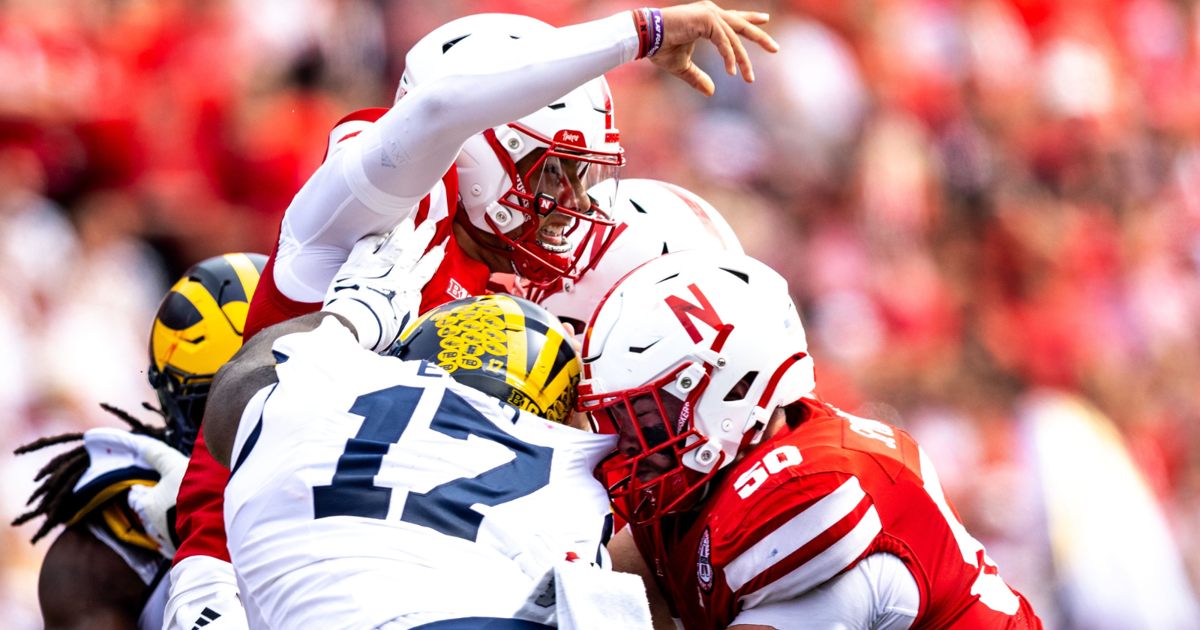
During Climate Week NYC, leaders gathered to discuss solutions to the most pressing sustainability challenges across many industries. Events and panels tend to focus on energy, technology or transportation sectors as key battlegrounds for environmental action, but one industry is emerging as the next frontier in the climate fight: sports.
Morgan Stanley estimates that the global sports industry’s sales totaled $521 billion in 2024, growing at an average rate of 8 percent per year. It employs hundreds of thousands of people directly or indirectly, through broadcasting, advertising, retail and travel. Sports can also show fans and players alike the impacts of rising global temperatures, habitat destruction and pollution first-hand.
During the Skiing and Sustainability event Tuesday, moderator Wayne Arden, vice chair of the Sierra Club NYC Group, noted that several ski resorts have closed in the past few years.
“No industry is more dependent on cold winters than the ski industry [and] no industry is more under threat than the ski industry,” he said. “It’s a globally significant industry with some 2000 ski areas and resorts in 68 countries, responsible for billions of dollars in economic development.”
Boyne Resorts, with several locations across the country, is taking multiple steps to be more sustainable, including setting 2030 net-zero carbon emission goals. Tom Bradley, vice president of sustainability, told the panel about Boyne Resorts’ efforts to encourage visitors to carpool and use electric vehicles. In addition, the resorts plan to switch to renewable energy to power ski lifts, the snowmaking process and its on-site vehicles.
At Monday’s Playing for the Planet, hosted by Columbia University School of Professional Studies, speakers used their unique perspectives as athletes, activists and organizers to discuss how sports can be an entry point for climate action.
“Sports aren’t just entertainment, they’re really about culture and they can drive some really impactful change to address some of the world’s most pressing issues,” moderator Chandler Precht told Newsweek. Precht, a former athlete, serves as director of external affairs and communications for Columbia University’s graduate programs in Sustainability Management and Sustainability Science.
Related Stories
Climate Impacts on Sports
During the panel, Lewis Blaustein said that many athletes are inspired to lead on this issue because of one common circumstance: they play outdoors.
Blaustein is the founder and CEO of EcoAthletes, a nonprofit that coaches more than 200 professional, Olympic and NCAA athletes on how to be climate leaders. The organization includes swimmers, rowers, marathon runners, golfers and sailors, all of whom play outdoors and have directly experienced the impacts of climate change. And they want to do something about it.
One of EcoAthletes’ Champions is businesswoman Lady Merle Liivand, an Olympian and champion open-water and ice swimmer from Estonia. Liivand, who has set numerous world records, is known as a real-life mermaid for her swims with a monofin.
She told the panel that her environmental activism began when she was teaching kids to swim while in Rio de Janeiro for the 2016 Summer Olympics. Seeing trash pile up in the waters of Copacabana Beach, she said, was her “aha moment” to start doing something about ocean pollution.
She set the world record for swimming the longest-ever distance with a monofin, reaching 50 kilometers, about 31 miles, without using her arms. Along the way, she picked up 35 pounds of trash.
But it’s not just trash that is threatening her sport. Rising ocean temperatures lead to increases in toxic bacteria and algal blooms, and warmer oceans contribute to the frequency and severity of natural disasters. All of those factors can render the water unsafe for long periods, reducing the amount of time that athletes can train and compete.
Liivand said the best way she can show up to make change is to embrace her mermaid identity when she speaks with world leaders. She uses her light, joking manner to warn governments that mermaids will never visit their beautiful beaches if there is pollution or loss of habitat, for example. Her efforts have both changed laws and brought awareness to the urgent need to preserve marine life. “I’m making them listen to [this] mermaid and slap[ping] them with the mermaid tail,” she said.
Sometimes, pollution is less obvious than plastic straws and flip flops floating in your path.
Mackenzie Feldman was a Division 1 volleyball player at UC Berkley when her coach told her not to chase any balls that rolled into the woods surrounding her practice area. The reason, the coach casually mentioned, was that toxic herbicide had been sprayed in the area. Shocked, Feldman started an initiative with her teammates to ban the use of toxic chemicals on campus.
As a native Hawaiian, she grew up knowing the harmful effects of industrial farming. She has closely followed lawsuits against Monsanto, the manufacturer of Roundup, which has been linked to cancer cases.
Her organization, Re:wild Your Campus, works with students across the U.S. to eliminate toxic pesticides from college campuses and train groundskeepers on organic, biodiverse land management.
Feldman shared her passion for empowering young people to get involved in climate issues by taking action. She told the panel that sports have a great power to provide the kind of community, connection and involvement she wants to bring to the environmental movement. And activists need to create opportunities for people to join in.
“People want to be part of something – you want to be part of a team, you want to cheer on a team and feel that community,” she said. “I think we’re missing that in the environmental movement in many ways, because it feels like this very big issue and it’s hard to know how to plug into it.”
If there were more direction and opportunities for people to be involved, more people would be drawn to the movement, she said.
Additionally, she said the conversation about climate can’t be all “doom and gloom”; activists need to bring the fun and excitement of watching sports to their causes, making them more entertaining, even joyful.
Feldman said there are “a lot of opportunities for athletes to use their voice” to make direct impacts on their campuses and beyond. “I think college athletes have tremendous power on a campus,” she said. “There’s tremendous opportunities for athletes to speak out about this.”
Individual Action
The panelist also emphasized how the athlete’s mindset can be directly translated to activism.
“We all have fears [and] sometimes your fear is taking too much space in your head instead of reaching the goal,” Liivand said. “When [athletes] have these goals, we go for it and train for it, we show up at a race without knowing if we are going to win a medal.”
EcoAthletes’ Lewis Blaustein called athletes the most influential humans on the planet and said they have been leaders of social change for decades. Jackie Robinson, Billie Jean King and Muhammad Ali, for example, all transcended their roles as athletes to help bring change in issues related to race, gender, sexuality and politics.
“There’s one aspect that the athlete has access to that scientists and academics don’t,” he continued, “and that is the media. The media is the megaphone.”
Not only are athletes broadcast on televisions around the world, but they often have endorsements and large social media followings. Politicians at all levels, as well as their constituents, have favorite teams and players. They relish the local pride that sports can bring.
Athletes’ outsize influence, Blaustein said, can and should be used for good. But when it comes to discussing climate, he added, many athletes have mostly sat on the sidelines.
Blaustein attributes that to fear. Many athletes might fear being perceived as too political or too uninformed to speak out about science. Some might feel like it’s hypocritical to be advocating for the environment while flying around the world to compete.
“We train athletes to overcome these fears,” he said. “You do not have to be an expert, you just have to care and know that you want things to be better for our generation and the generations to follow.”
Blaustein said EcoAthletes is pushing for a “climate comeback.”
Just like any good sports movie, the climate is set to make a great comeback, he said. The “climate comeback” is a mantra for EcoAthletes and a useful metaphor to empower players to fight back against the odds. This means course-correcting when needed and constantly improving to reach climate goals.
“We are behind in the climate game [and] the scoreboard, the scoreboard is against us,” he said. “We need a comeback to provide a habitable, healthy climate for us and for the succeeding generations. Athletes do comebacks.”
Industry Actions
Zach Ruiz is the sustainability manager at the Kaseya Center, home of the Miami Heat. Since joining the organization, Ruiz has implemented an award-winning sustainability strategy that has inspired staff, fans and talent to make simple but impactful changes.
Ruiz shared on the panel how recycling initiatives, composting activations and public transit options at stadiums all show the community that there are sustainable actions to be taken even after leaving an event.
“We’re doing what we can as an organization to reduce that impact of putting that [sporting or music] event up for the fans so they can continue to learn and giving them the empowerment, those options, that education and hoping that they take that home into their own lives,” he said.
Ruiz said it’s important to find what people in the organization are passionate about and take steps to bring that to life through initiatives, policy changes and outside partnerships.
“When I started, I was figuring out what’s important to everyone. I knew the specifics and sciences, but I wanted it to come from other people, to let them drive the ship because when you have all people together, pushing an initiative, it moves the needle,” he told Newsweek.
Dartmouth is one of the leading academic institutions fighting to save the ski industry with realistic, sustainable solutions.
“Everything that we’re doing ultimately has a positive business case to it,” said Josh Keniston, senior vice president for operations at Dartmouth, during the Skiing and Sustainability panel. “Not only is this the right thing to do based off of what we’re seeing in climate science, but it’s also fiscally smart. I think that’s what pushes us over the edge and I think this is also where there’s space for innovation.”
Looking Ahead
Re:wild Your Campus aims to eliminate synthetic pesticide use from all U.S. colleges by 2030, a goal Mackenzie Feldman admits is bold.
“At this point, we have to act like this is urgent because it is,” she said. “Regardless of what’s happening with the government, we have to do what we can to change this. And so we set ambitious goals, because it’s the only choice we have.”
In sports, she said, athletes do the impossible, shattering expectations and breaking records the world never imagined were breakable. And that inspires other people to do the same.
“We need the leaders in sports who have the resources to just set ambitious goals and do it,” Feldman said. “And then other people, other organizations and institutions will follow because they’re seeing that it is possible.”
At the international level, the panelists on the Skiing and Sustainability panel agreed that the International Olympic Committee should make sustainability a criterion for choosing the hosts for future Winter Olympics.
“If you’re looking at these in the right way, there becomes a business case to invest in the sustainability,” Josh Keniston said. “And so at some point you have to be selecting hosts that can get the stuff done.”
During that panel, Caitlin Hicks E. Pries, an associate professor of biological sciences at Dartmouth, noted that optimism is needed to accelerate progress in the climate conversation. When tackling big climate problems, she said, experts are often pessimistic, focusing on obstacles to change.
“We have solutions, not all of them, but we have them,” she said. “We need to be more positive and to focus on what we can do and to keep making that progress. And we need to do that to give hope to the next generation so they can continue to progress as well.”



